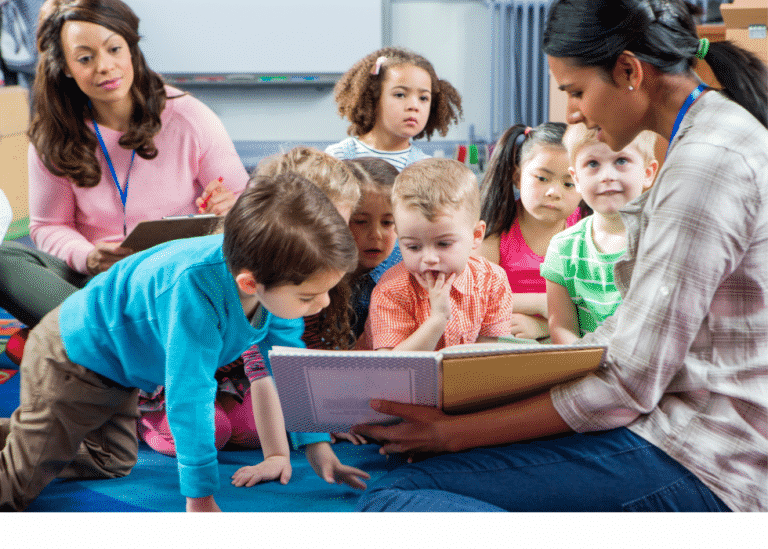Songs and games with rhyming words are an important part of any early childhood program. Children’s books use rhyme to create rhythm and interest. Rhyming words sound the same at the end:
mouse/house, cat/bat and so on.
Rhyming is mainly a function of sound rather than spelling. For example, words that rhyme end with the same vowel and consonant sound but can have different spellings:
stay – prey – weigh – bouquet.
rain – vein – lane
who – moo – flue
On the other hand, words that contain the same letter patterns may not rhyme, for example:
move – love
Let’s take a moment to look a little deeper at rhyming. There is more to it than meets the ear!
Recognising rhymes is an early phonological (sounds) awareness skill. Phonological awareness is the explicit understanding that spoken words consist of smaller parts: syllables, onsets and rimes, and phonemes (Gillon 2004).
Syllables are units of pronunciation that contain vowels and often consonants:
cat-a pill-ar
dog
bu-tter-fly
Onset is the first sound or consonant blend in a word:
c in cat
str in street
pl in play
Rime (not a spelling mistake) refers to the sounds that follow the onset, usually a vowel and final consonants:
at in cat
ent in tent
So words with common rimes are rhyming words! This is one way that children begin to be able to hear that words contain smaller parts. They can break down words into onset and rimes and eventually will hear and learn that words are made up of individual sounds. When they can do this, they will find learning to read much easier.
As educators and parents we can teach children rhyming songs and stories. Not all rhyming activities are equal and some are more difficult than others. Recognising rhyme is easier than generating rhyming words. It is important to build on early skills.
Rhyming skills are an early phonological awareness skill that is not a strong predictor of later reading success. However, rhyming activities are fun and engaging and most children are good at rhyming. If a child can’t rhyme, it may indicate a need for more focused assessment and intervention.

